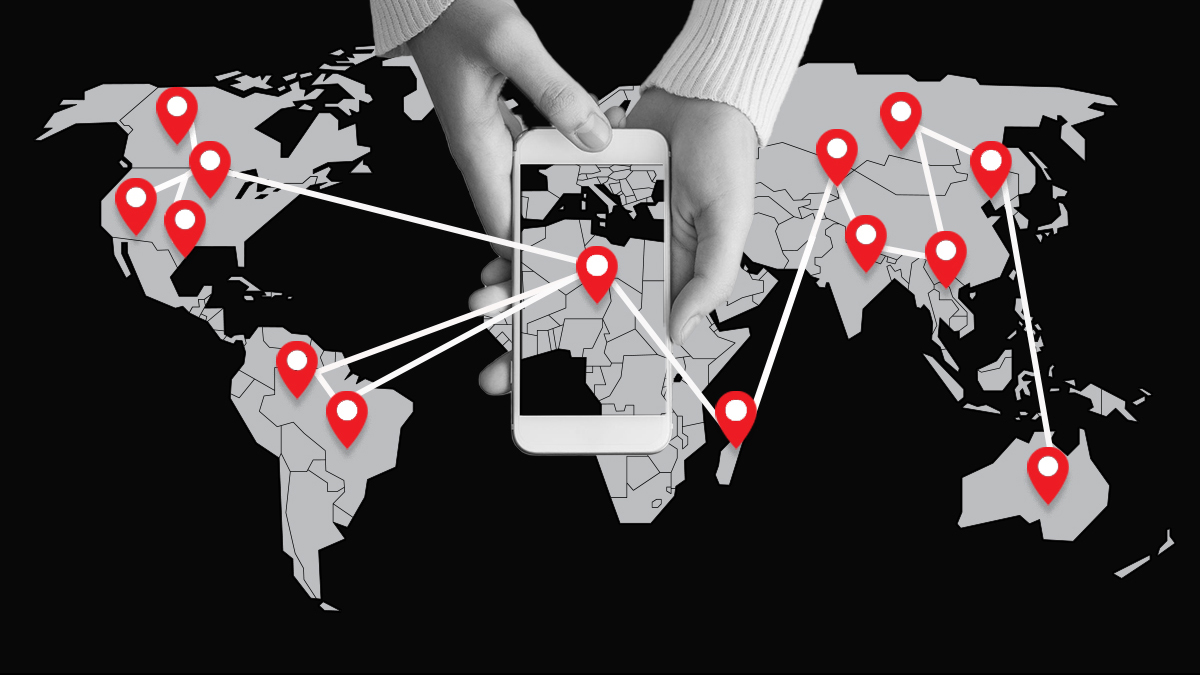The McGill Research Group on Health and Law (RGHL) held an interdisciplinary panel on Jan. 13 titled “New or normal? Privacy, Public Health and the Pandemic.” Moderated by Faculty of Law associate professor Lara Khoury, the three panellists, Dr. Anne Andermann, Ignacio Cofone, and Dr. Khaled El Emam, discussed the balance between protecting individuals’ privacy and battling the pandemic through data collection.
The collection of personal data by the Canadian government has increased during the pandemic with the roll out of smartphone applications like Canada’s COVID Alert to trace COVID-19 transmission. Of concern to the personal freedoms side of public health measures are individuals being handed hefty fines for disobeying Quebec’s new 8:00 p.m. to 5:00 a.m. curfew.
Dr. Andermann, a family and public health physician and associate professor in the Department of Family Medicine at McGill, believes that the medical field can better support under-served populations—such as racial minorities, the economically disadvantaged, and the elderly—by continuing to collect data and restrict movement in order to slow the spread of the virus. New findings have shown that COVID-19 is disproportionately affecting Black Canadians and other marginalized groups.
“These freedoms have […] consequences,” Dr. Andermann said. “One of the things about COVID that was clear very early on was that it’s not just a pandemic [….] It’s also a syndemic, meaning that it’s not affecting equally all populations in society.”
Ignacio Cofone, an associate professor in McGill’s Faculty of Law with a background in privacy law, detailed the vast amounts of personal information that COVID-19 contact tracing applications collect. Cofone believes that Canada’s COVID Alert application is among the best for protecting privacy.
“COVID Alert is really the most privacy-sensitive option that the Candian government had available that can still be functional,” Cofone said. “[The app] is Bluetooth and […] stores the data locally.”
Khaled El Emam, a professor at the University of Ottawa Faculty of Medicine and senior investigator at the Children’s Hospital of Eastern Ontario Research Institute, believes that collecting individuals’ health data is necessary, albeit with caution. Dr. El Emam argued that Privacy Enhancing Technologies (PETs) are good measures to protect sensitive personal information while still providing scientists and analysts with strong banks of data to sift through. PETs are what they sound like: A wide range of technologies used to hide or protect individuals’ personal information. Some PETs render data non-identifiable, stripping the requirement of consent which, Dr. El Emam noted, brings with it consent bias.
The use of PETs can also speed up the ethics review process, making data available quicker. According to Dr. El Eman, the risk-based de-identification and data synthesis are two of the most common and effective PETs used for making real-world health data available to public health experts. Despite his faith in these processes, he cautioned that no method is perfect, and that there is always a risk of data being re-identifiable.
“[These PETs] illustrate that we do know how to make real-world data available in a privacy-protecting way,” Dr. El Emam said. “Examples of this are happening in different regions of the world like […] the U.S. and Korea [….] The problem is that the ability to put these data-sharing mechanisms into operation has been quite heterogeneous.”
Dr. El Emam hopes that building a strong infrastructure for health data, with high privacy standards and greater efficiency, would better prepare Canadians for the next public health crisis.









